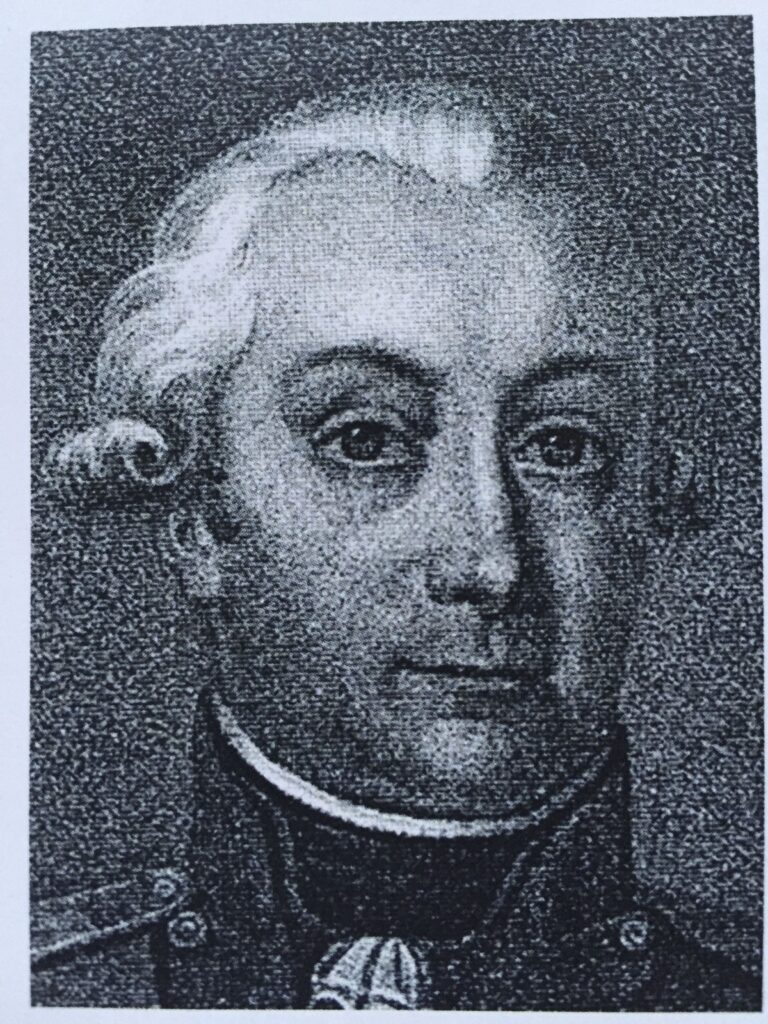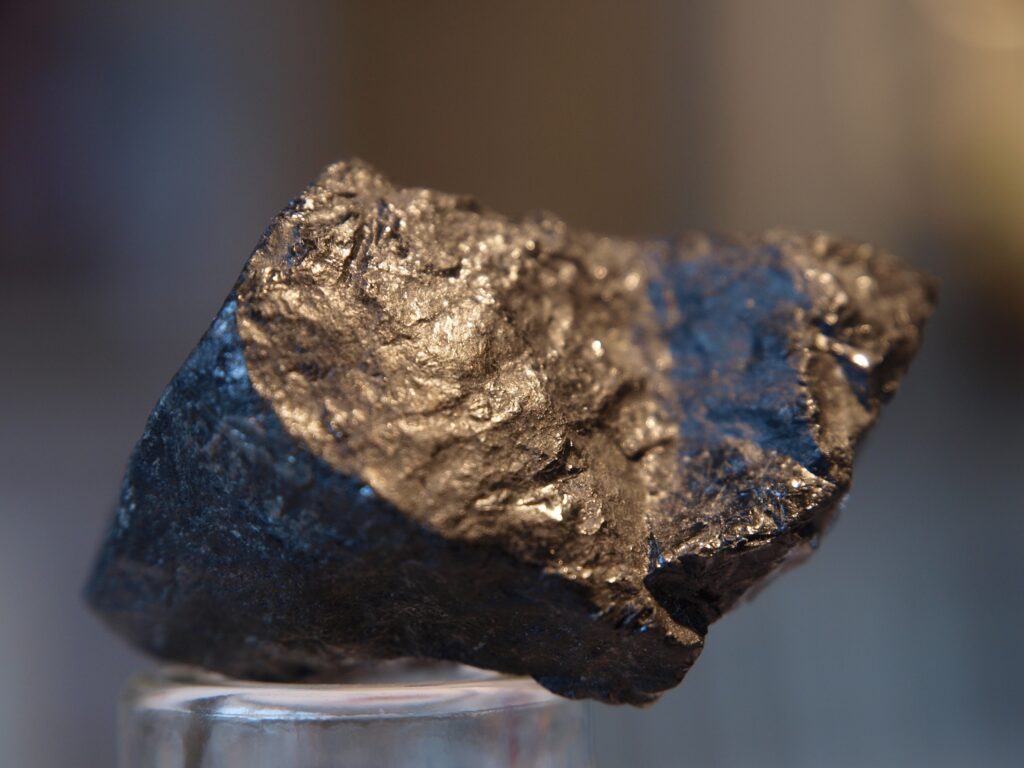
In 1787, the artillery officer Carl Axel Arrhenius goes to Ytterby to investigate the possibilities of building a fortification at this strategically important place at the entrance to Stockholm.
Arrhenius, who studied chemistry and mineralogy, notices a heavy black stone among all the quartz and feldspar. Hoping to have found Tungsten, he takes the stone with him and shows it to his friend the miner Bengt Geijer. They agree that it is a new, unknown mineral, and the discovery is published in a German chemical journal, where the mineral is named Ytterit.
The heavy rock also caught the interest of Finnish-Swedish chemistry professor Johan Gadolin. In 1794, he published a large analysis with the title Investigation of a heavy black stone from Ytterby quarry in Roslagen.
In the stone, in addition to silicon oxide and iron, he had also found large amounts (38%) of a previously unknown oxide, an outer earth that he names Yttrium.
The mineral itself now changes its name to Gadolinite.

With this discovery, the door is opened for an unparalleled 100-year period in which mostly Swedish chemists, using increasingly refined analytical methods, succeed in isolating and identifying eight elements from this oxide. Four of them will be named after the name of the mine: Yttrium (Y), Ytterbium (Yb), Erbium (Er) and Terbium (Tb). Most of the other elements are also named based on the local area: Skandium (Sc – lat. Scandinavia), Holmium (Ho – lat. Stockholm), Thulium (Tm – from the Roman Thule, Scandinavia) and Tantalum (Ta – from the mineral yttrotantalite).
In total, during the 19th century, Swedish researchers will identify 23 of the approximately 92 naturally occurring elements found in the periodic table. This is often labeled as the Swedish chemical wonder, and the place that more than others symbolizes this is Ytterby mine!
Therefore, in 1989, the American materials organization ASM international, and in 2019, the European chemists’ society designated Ytterby mine as a historical landmark, an inalienable part of our world heritage!